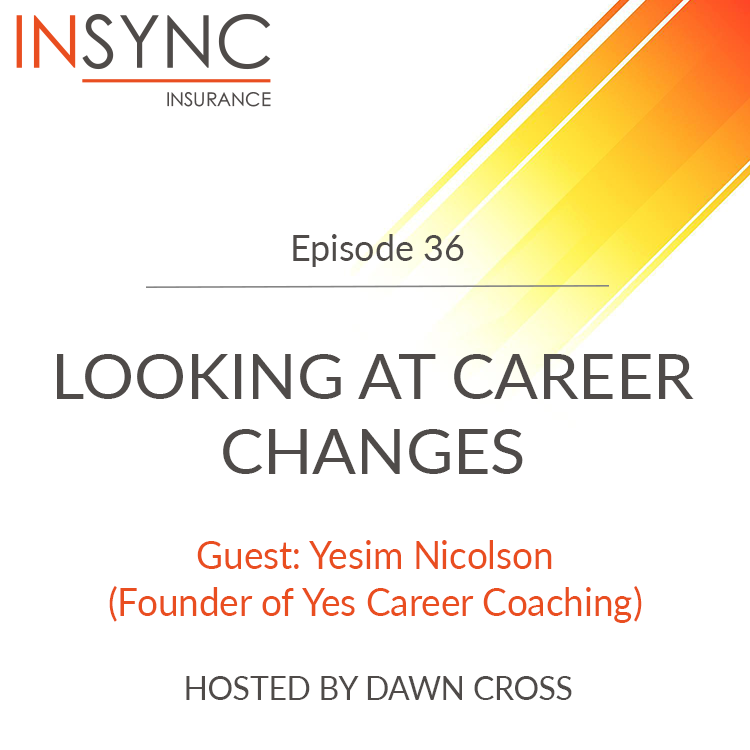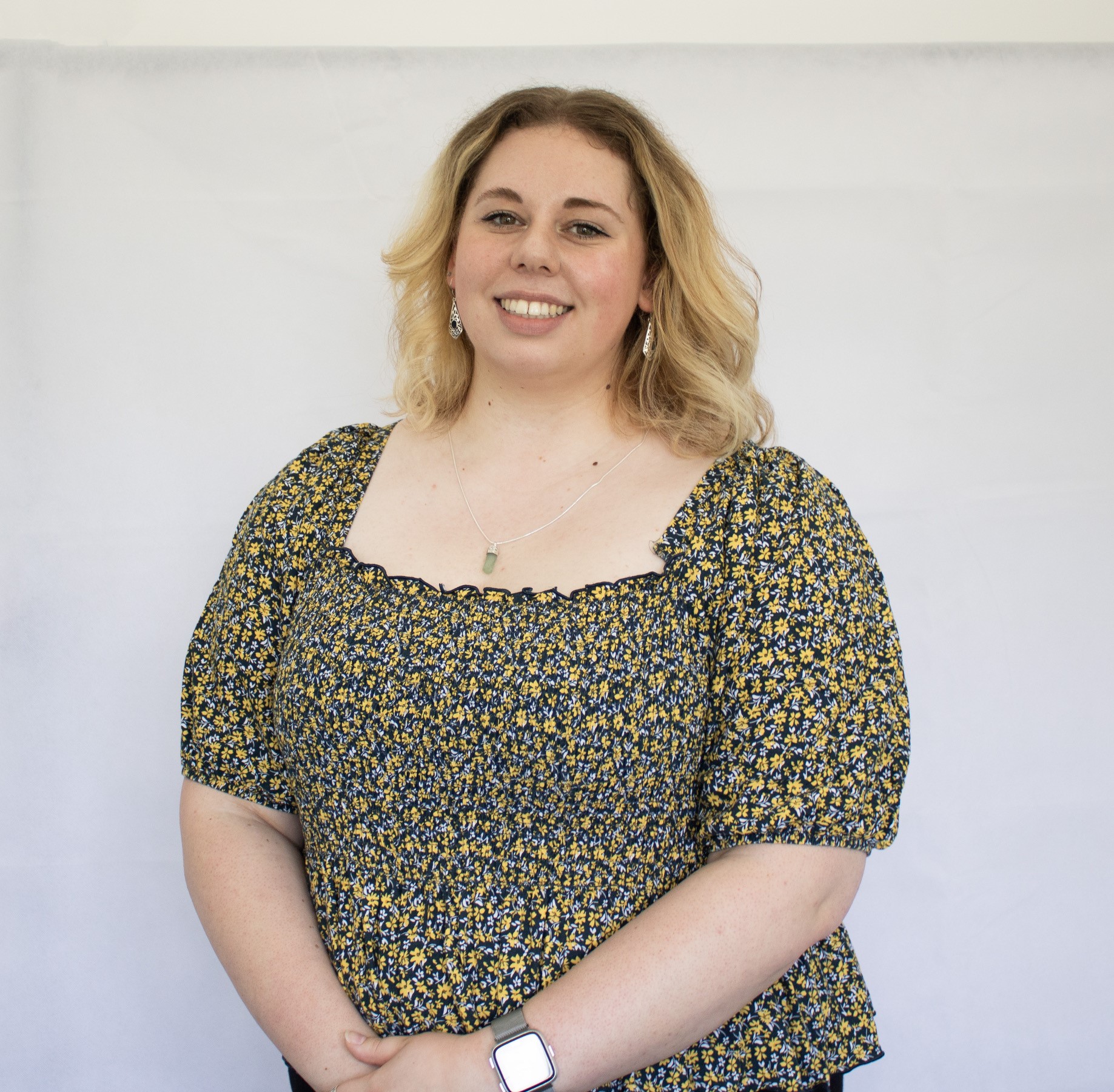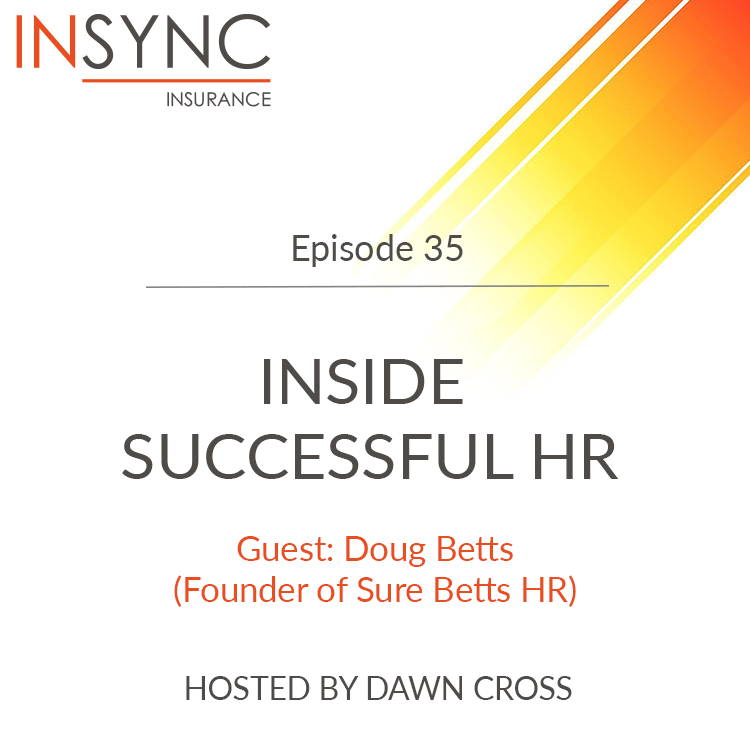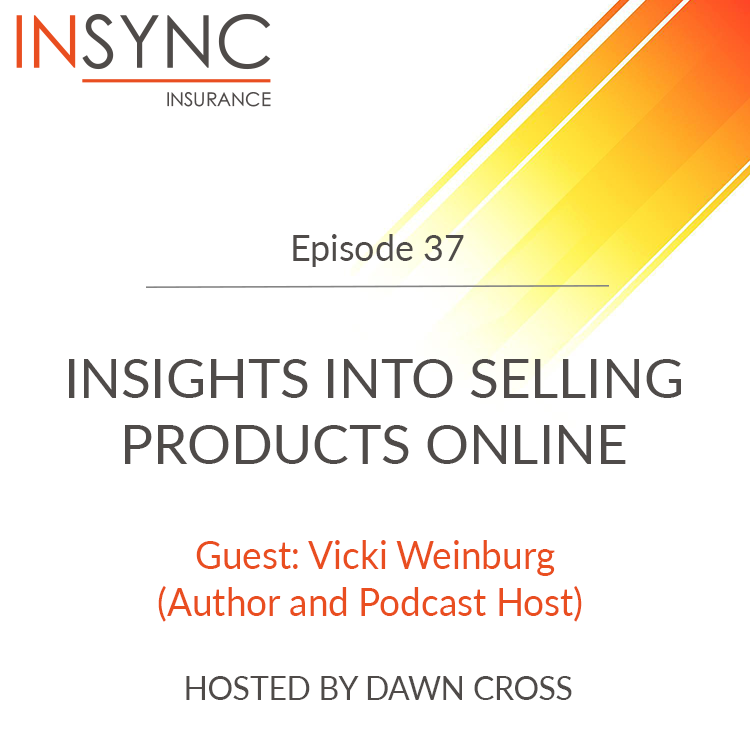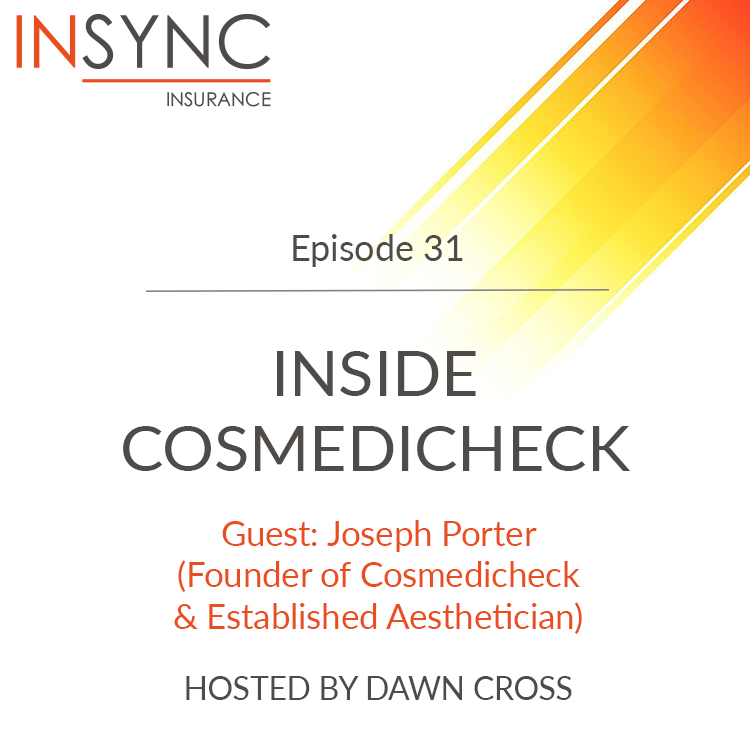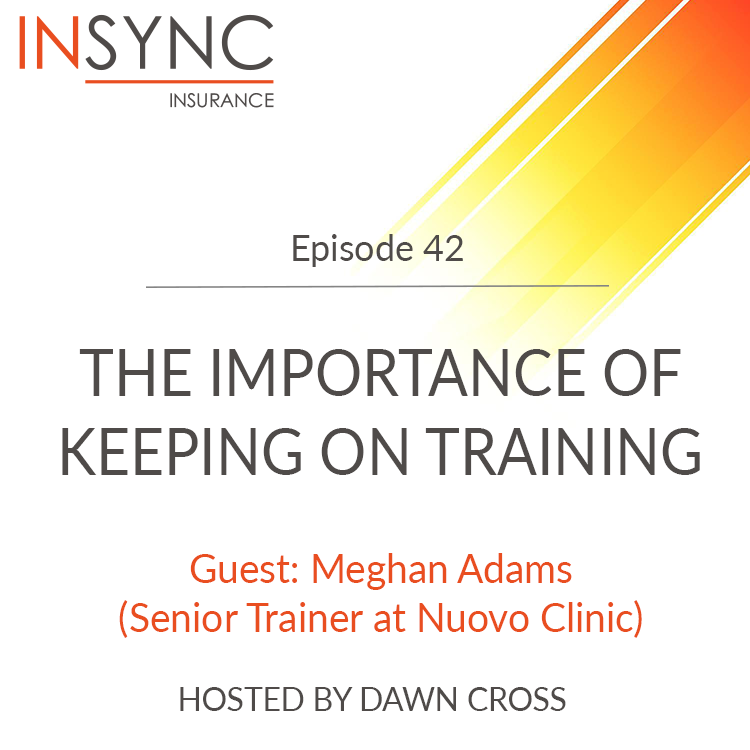Episode Transcript
[00:00:02] Speaker A: Welcome to the NSYNC Assurance podcast. I'm your host, Dawn Pross, and today I'll be discussing looking at career changes with Yesam Nicholson, author and founder of yes Career Coaching.
If you enjoy our podcast, make sure to leave a rating on your favourite podcast directory.
[00:00:20] Speaker B: Brilliant. So if I could just start off with you, how can I get you to introduce yourself and your business?
[00:00:26] Speaker C: Yeah, so my name is Yashem Nicholson and I run a business called yes career coaching. And as the name would suggest, I work with people who are looking to make a change in their careers. So perhaps they've been in a job that they've been unhappy in for a little while. Sometimes it's a long while and they feel stuck in that job for various reasons. It could be financial or other things. So we work together to work out a what they would like to be doing instead, or how they would like their career to be looking. And then we work a little bit on confidence and making that next step. And yeah, the last element is the action. It's all good and well, talking about what you want to be doing and having a vision, but then actually making, you know, putting in place real actions. So that's where I come in. Yeah. So I work with people on a one to one basis, but I also have my own podcasts where I interview people who have made amazing career changes. I like to say it's ordinary people making extraordinary career changes and I've literally just, in the last two weeks, released it's hot off. Literally hot off depressed. I've just released a book which is called ready to quit your job? Actually, it's over my shoulder. Tada. Brilliant.
[00:01:46] Speaker B: Definitely. And I think as well, for anyone that's interested, we'll include a link as well on how they could purchase it or access it as well.
[00:01:53] Speaker C: Great.
[00:01:54] Speaker B: Brilliant. So I guess I'm quite curious, you know, how did you get into the coaching business? Like, was there a kind of turnpoint where you're like, oh, I could be really helpful and useful to people?
[00:02:06] Speaker C: Yeah, I mean, actually I qualified as a coach almost exactly 20 years ago. That's how old I am. And then I actually have used all my coaching skills in different roles that I have held over the last two decades, but never, I've never been just a coach. I've been a business advisor, I've worked in lots of different capacities.
But I really love the coaching element. I love asking those poignant questions. I love hearing people's ideas. I literally, I get so excited when people tell me the vision that they've got for something. And being then able to play a really small part and then making it happen is, I don't know. To me, that's the best job in the world.
So I always knew I would become a real coach at some point.
It was just a matter. The time was really right about 18 months ago, and I set up career coaching because I think getting to an age where I was having lots of conversations with friends where we were talking about their careers, and a lot of my peers do feel stuck in careers that they perhaps fell into by accident, or they're in careers that have served them really quite well, but they don't want to continue in that. They've got other interests or they want to do something that's a little bit more meaningful or allows them to have more freedom to spend more time with their kids or whatever it might be. So I was having all these conversations, and I could see that it was like they were having this internal struggle, this battle, and I was like, well, maybe this is something that I can help with. And that's kind of how this business went from a seed of an idea to a real, real thing.
[00:03:56] Speaker B: That sounds amazing as well, is the fact that you kind of draw from those. And it's like, you know, actually, there is a market for this. And, you know, not, not everyone, especially after the pandemic, there's been this major shift, hasn't there? So it's really great that you're able to tap into your amazing skills and be like, right. You know, if you want to follow what you love, you need to actually start actioning. You just go do it.
[00:04:19] Speaker C: Yeah, totally. Yeah. It's easier said than done, I think. It.
You do feel like saying, just do it. But actually, you know, I realize that we, we do have pressures on our, you know, that we've either put there ourselves or other people have put on us. And queer changes do affect our lives, but they also affect the lives of the people that are closest to us, our family, our friends, our parents, you know, so it's not something I never advocate. Just, you know, the whole Nike, just do it. I don't really always advocate that.
In fact, my book, I talk about four possible outcomes of either working with me or reading my book is that you're either going to be a remainer, which is somebody who ends up reassessing where they're at in life and with their career and goes, actually, I really quite like the people that I work with. And actually, I do find meaning in my work, and I do find purpose, actually, when they do that assessment, when they stop to take time out, they go, oh, actually, I do quite, actually, I am quite happy where I am. But they just needed that time to reflect, and then they end up having a bit of a mindset shift, which is great because you then turn up to work in a totally more positive, upbeat way. So that's the remainder. Then you've got the tweaker who goes, oh, I quite like what I'm doing, but actually, if I could just, I don't know, work from home a little bit more, a little bit less, we'll take on responsibility or less responsibility or go into the office, you know, whatever it might be, or work part time, then that can shift things for people. And then the third option is a toe dipper. So that's somebody who goes, I know that long term, I'm going to change my job.
So I'm just going to try out different things. I'll start a little side hustle, start exploring other options outside of my nine to five. And then the fourth option is the leaper. That is the person that goes, no, I know that I'm ready for a change. I'm just going to take that leap of faith. I'm just going to go for it. So don't advocate just quitting your job ever, really.
[00:06:28] Speaker B: That's fine. I think it's amazing you've also got the categories because maybe you just need a bit of a revaluation of just like, okay, so maybe I just. Yeah, like you said, literally just tweaking it a little bit. Like what? Can you just get my satisfaction level just a little bit higher?
[00:06:44] Speaker C: Yeah, exactly that. Yeah.
[00:06:46] Speaker B: So my, my next question for you really is, um, you know, obviously I was saying about the pandemic. It's been a bit of a shift, you know, why do you think a lot of people feel stuck in their careers nowadays? Like, have you seen any kind of major, like, point that seems to be coming up again and again?
[00:07:03] Speaker C: I don't think it's anything new. I think people have, you know, when they've stopped to really just consider where they are in life and their careers, it's, you know, some people come to the conclusion, yeah, everything's great, but a lot of people don't. But we're just so busy going through the motions of, you know, get up, get to work, you know, get through my inbox, go home, have something to eat, sleep, and repeat that. We don't often stop to just take stock of where we are. And I think you've mentioned pandemic. I think for a lot of people, the pandemic was the first time that they really just were forced to stop and forced to just take a bit of time to go, actually. Do I like what I'm doing? Do I like the people that I'm working with? Are my values in line with the company that I'm working for? And for a lot of people, the answer was no. So I think that's why we've seen this massive shift to people going, you know, I'm just going to do my own thing. I don't want, you know, my life to be in the hands of a big corporation or whatever. And there's nothing wrong with that, by the way. That works for a lot of people, and it works really well and it's worked well for plenty of time. But for some people, it's just like, actually, this isn't going to work for me going forward. So, yeah, I think that whole being stuck isn't a new thing. I think we're just maybe a little bit more conscious post COVID about what we're doing, how we're spending our time.
[00:08:28] Speaker B: That's brilliant. I think my next question, obviously, you know, you probably allude to this in your coaching, in your book. If we could maybe get a little snippet, is, you know, obviously if someone's maybe just had that light bulb ideas, like, you know, actually, I'm kind of unhappy. Like, what would the next step you recommend that they take in this kind of journey of learning about, you know, what they need to be doing or maybe they need to feel like they have that change.
[00:08:54] Speaker C: Yeah, I mean, I think some people just inherently know what they want to be doing instead. They just perhaps haven't had the confidence to go after that. So that's. That's kind of the easier option. If you know what you want to do, then you can start just putting things in place to make that happen. You know, it might just be that you need to upskill a little bit before you have the confidence to make the leap, or it might be having conversations with people that are already in that industry or, you know, maybe just putting a business plan together. So I think if you want to know what, if you know what you want to do, that's relatively easy.
The trickier part is I come across lots and lots of people who literally have no idea what they want to do. They've totally lost touch with who they are, what makes them tick, what excites them, what, you know, what brings them joy. So there is, I have a whole section in the book about rediscovering who you are, which might sound silly because actually, you look quite young, so you're probably not at that point yet. But a lot of people do get to sort of, you know, their forties and fifties and go, oh, my God, I literally don't know when I last had fun. I don't know what fun is anymore. I don't know what I'm passionate about. I don't know what I really believe in anymore. So I do talk people through that process of rediscovering who you are. And part of that, that is breaking with the routine, as simple as it sounds. But we get into this place where we're just doing the same things with the same people in the same environment, having the same sort of thoughts day in, day out, and just making little conscious, making conscious effort to break those little things, you know, like, it could be something as silly as driving to work a different way, you know, just to shake things up a bit or, you know, reaching out to maybe a colleague that you used to work with 20 years ago that you have seen on LinkedIn that's doing interesting stuff or, you know, whatever. It's just about expanding your horizons and looking at what might be possible. And I'm a huge fan of taking time out, which I totally get. Some people are like, I can't take time out.
Minutes to myself. Never mind. Yeah.
If there is any opportunity to take time out and do something a little bit different, you know, go away for the weekend by yourself, not, you know, with people who would normally go away just doing that, just rediscovering who you are, have. Have that mental clarity. I go into that in a lot more depth. Obviously, in the book, it's hard to portray it in just a couple of.
[00:11:28] Speaker B: Oh, of course, yeah. Also, you don't want to give it all away.
[00:11:31] Speaker C: Like, I'm happy to give it away. I'm so on a mission to get people out of jobs that they're miserable in that I'm happy to give stuff away. But, yeah, it is a process, and it's not something that happens overnight, but that. But also, I'm trying to advocate the fact that this can be a really fun experience. To rediscover yourself can be really, really fun. I think a lot of people are like, oh, I'm so miserable, but I don't know what to do. And they get into this, this, like, state of sort of being anxious about it, and I'm like, okay, first of all, let's reframe this picture and go, okay, how can we make this fun? How can we make this just an enjoyable part of your life that we rediscover who you are? I mean, what could be more exciting than that?
[00:12:20] Speaker B: I think it sounds amazing as well, because I think, you know, it's not just one aspect of your life. You know, you're saying, like, rediscovering yourself. You know, it's. It's all interconnected on how you live and thrive, essentially. So, I mean, I've always gone for the philosophy of, instead of just surviving, we need to be thriving because, you know, at the end of the day, it's.
Although, yes, you know, there's certain things we do need to do to be, you know, run the mill of life. But, like, you know, there's still things you can do to make it fun for you and still enjoy it and have those fun experiences or even just, you know, changing up an environment or, you know, you work from home more, work from home less, that sort of thing. I think it's so key, I think, to anyone of any age that, you know, at the end of the day, yes, okay. Work is great because you get money, so you can do other stuff, but it's like, you know, you don't have to be miserable or work.
[00:13:10] Speaker C: No, no, totally, totally.
[00:13:13] Speaker B: That's great. Well, I guess my last question is, do you have any kind of, like, tidbits or advice you'd like to give for anyone who's maybe the same episodes kind of pricked up a little bit of an idea in their brain, you know? What. What kind of advice would you give to anyone listening to this? And go, actually, you know, I'm quite resonating with a lot they're saying today.
[00:13:32] Speaker C: Yeah, I mean, I think, just, first of all, start with this place of believing that this can be a fun process. So you, if you're feeling stuck, just reframe a little bit and go, well, this is a great opportunity for me to just, you know, experiment with what I might be able to do instead. What would I like my life to be like? And then just taking the time and having conversations with people who inspire you. I have a whole section about your network, the people that you surround yourself with, because we do all have people in our lives who, you know, there's no mal intent, but we do have people in our lives that will tell, will say, or sort of run an idea by them, and they'll go, oh, I don't know if that's a good idea. I think you should just stick to, you know, your secure 95, whatever it might be. And their intentions are good. They just want you to be in a safe place and they don't want you to have to struggle or whatever. But sometimes people can hold us back in that way. And it's really finding the people that enjoy inspire you, the people that will cheerlead you, the people that think you're the bee's knees, the people that make you feel confident and like you can conquer the world and really spending as much time as possible with those people. And you want people to be real with you. You don't want just people that go.
[00:14:58] Speaker B: Yes, yes, yes, you do need people.
[00:15:01] Speaker C: That are gonna be like, yes, this is a good idea. And okay, how are we gonna make this happen? How can I help you? How can I support you? So it's really about finding that tribe, finding those people who you look up to, who inspire you. And it can be real people that we can connect with on a very real level, or it can be famous people that we might never meet, but we can listen to their podcast, we can read their books, we can be inspired by them in that way without actually having that physical contact with them. So, yeah, that's where I would start.
[00:15:39] Speaker B: Thank you so much for coming on today.
[00:15:41] Speaker C: Ah, it's been my pleasure. Thanks for having me.
[00:15:46] Speaker A: Thank you to my guest today, Yesam Nicholson, for chatting about our coaching company and tips on how to start making changes. If you're interested in our new book, please click the link in the description.
I have been your host, Don Cross and tune in next week for another episode.
Insync is one of the UK's fastest growing insurance providers, offering comprehensive cover for SME's and the self employed across the UK. Our expert team can tailor your insurance to meet your individual business needs and compare prices. From our Lloyds of London approved partners, we offer a five star service and have been FIFO platinum trusted winners five years in a row.
